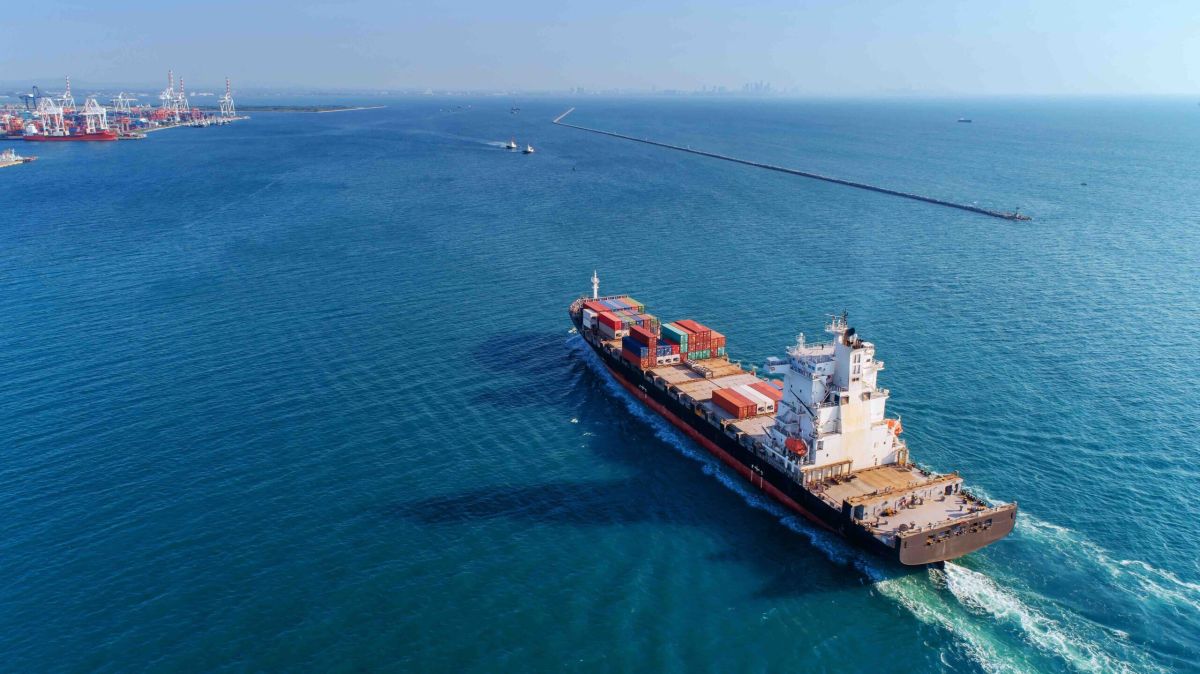eNews, International
Red Sea Conflict Disrupts Global Shipping Routes

The world’s biggest shipping companies are rerouting vessels away from the Red Sea as the global supply chain faces severe disruption amid conflicts related to the Israel-Hamas war. “The Iran-aligned Houthis of Yemen are playing an escalating role in the conflict in the Middle East, attacking shipping in the Red Sea and firing drones and missiles at Israel in a campaign they say aims to support Palestinians in the Gaza war,” reads a Reuters article.
On Dec. 15, the Houthis struck two Liberian-flagged ships in the Bab el-Mandeb, part of their continued attacks on “merchant ships in the Red Sea before or after they move through the Suez Canal,” wrote Axios. As a result, the world’s largest container line, Mediterranean Shipping Company (MSC), announced it will reroute its vessels away from the Red Sea. Energy major BP also followed suit while Danish shipping company A.P. Moller-Maersk (MAERSKb.CO) said it would pause all container shipments through the Red Sea until further notice. German container line Hapag Lloyd said it was considering a similar move.
Why It Matters: The Suez Canal, which connects the Red Sea to the Mediterranean, is the shortest route between Europe and Asia. About 12% of global shipping traffic normally transits the waterway, according to Deutsche Welle. Now, ships traveling from the far East to Europe will need to make a detour around the entire African continent via South Africa’s Cape of Good Hope. “The journey will take more than a week longer and will add about 3,500 nautical miles (6,482 kilometers),” reads the article.
This disruption may echo the ripple effects of March 23, 2021, in which the bow of the containership, Ever Given, got lodged in the eastern bank of the Suez Canal. As a result, several shipments were delayed, particularly European imports from Asia. “The blockage held up some $9 billion in global trade each day, leading to time costs of the goods (i.e. economic depreciation, technical depreciation, and opportunity costs of capital),” reads a Port Economics article. “The Suez blockage further added to a constriction in shipping capacity and equipment and, consequently, some deterioration in supply chain reliability. Several weeks after the opening of the Canal, European ports experienced peaks in vessel arrivals, further increasing the pressure on seaport terminals, which was already high due to the peak in cargo demand induced by the COVID-19 pandemic.”
The Big Picture: Like the blockage of the Suez Canal, the rerouting of vessels will affect some business more than others. “It’s too early to understand the overall impact, but it will impact the ability to complete construction jobs since contractors will have to wait longer for building materials and supplies to be shipped and delivered,” said Shaun Papperman, CCE, CCRA, CICP, director of order fulfillment at Baltimore Aircoil Company, Inc. (Jessup, MD). “We’re monitoring the number of ships that are late and watching the ports to see if they’re running their usual backlog of ships that are anchored waiting to unload or if we start to see that bottleneck in certain areas. I advise that credit professionals look one or two tiers down their supply chain to understand what’s being sourced and how these disruptions might impact them as it impacts their ability to service their customer.”
Longer routes also raise the cost of fuel. “As these attacks have gone on, markets have taken more and more notice, so crude prices did end the week higher than they’ve been for the last couple of days or so,” Colby Connelly, a senior analyst at Energy Intelligence, a Washington-based energy information company, told Al Jazeera. “Especially as these attacks don’t look like they’re going to stop until there’s a stronger effort to actually stop them.”
Although U.S. shippers have several ocean routes, European shippers are looking to transport goods by air as an alternative. “While the Freightos Air Index daily rates for China to N. Europe shipments had been declining since late November, the push to air this week has fueled air freight prices,” Judah Levine, head of research at Freightos told CNBC. “This week they’ve increased 13% from $3.95/kg to $4.45/kg since ocean carriers made widespread diversion announcements, possibly reflecting an increase in air cargo demand from ocean to air shifts.” Cargo prices have skyrocketed since the rerouting of vessels from the Red Sea. “With 158 vessels carrying approximately $105 billion in ocean freight being diverted away from the Red Sea amid the risk of continuing Houthis’ attacks, cargo prices are soaring,” reads a CNBC article.
Longer routes will raise fuel prices, insurance costs and payrolls, said Dev Strischek, principal at Devon Risk Advisory Group, LLC (Atlanta, GA). “Expect significant interruption to perishable and seasonal goods as well as more interest in nearby suppliers and manufacturers from Mexico, Canada and other sources not dependent upon the Suez Canal,” Strischek said. “Watch out for slowdowns through the Panama Canal because of the drought that has reduced the amount of water available to operate the Panama Canal locks.”
As a credit professional, you want to figure out which one of your customers could potentially be involved and reach out to them. “Have an open conversation about what the effects are, how your customers are handling it and what their concerns are,” said Kevin Chandler, CCE, director of financial services at Zachry Industrial, Inc. (San Antonio, TX). “In turn, you want to understand how it affects your company. If you are insured, does the insurance cover acts of war and or terrorism? Some insurances exclude acts of war or terrorism in some cases. If you can, avoid that kind of area altogether to minimize risk.”
What’s Next: On Dec. 26, the United States said it was launching a multinational operation to protect commerce in the Red Sea from Iran-backed Yemeni militants. That same day, the Navy destroyer Laboon and other U.S. assets shot down more than a dozen drones and missiles in the Red Sea, “just days after the ship took down four unmanned aerial vehicles in the same waters,” reads a NavyTimes article.
Denmark’s Maersk is preparing to resume shipping operations in the Red Sea and the Gulf of Aden, the company said on Sunday, “citing the deployment of a U.S.-led military operation designed to ensure the safety of commerce in the area,” reads a CNBC article. “The shipping giant paused sending vessels through the Bab el-Mandeb strait earlier in December due to attacks against its ships. That rendered the Suez Canal, which is key to global commerce, unusable for most routes.”





